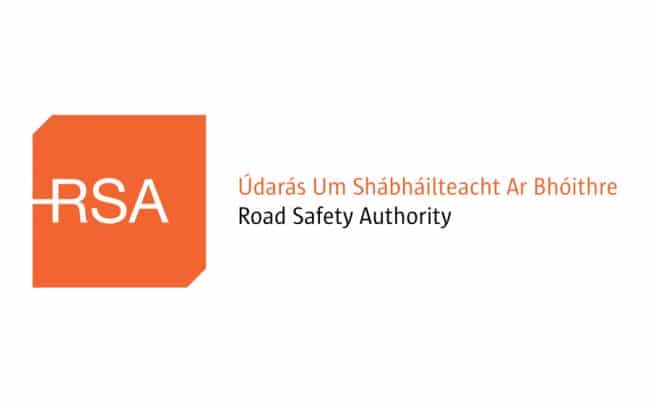- 39% of driver fatalities had a positive toxicology for alcohol.
- Young men significantly overrepresented in road user fatalities with a positive toxicology for alcohol
- Almost two-thirds of road user fatalities with a positive toxicology for alcohol, took place Saturday – Monday.
- 8,159 drivers arrested for driving while intoxicated in 2020.
Research published by the Road Safety Authority (RSA) reveals that the presence of alcohol is still a major factor in fatalities on Irish roads. The Road Deaths and Alcohol 2013-2017 report focuses on road user fatalities who had a positive toxicology for alcohol at the time of the collision. The research reveals that, of the 600 road user fatalities with a toxicology result available, 219 or 36.5% had a positive toxicology for alcohol. Of the 219 road user fatalities with a positive toxicology for alcohol, 135 or 62% were drivers/motorcycle drivers.
Commenting on the issue, Minister of State at the Department of Transport, Ms. Hildegarde Naughton said: “The findings of this report are very concerning. I am particularly struck by the high levels of alcohol being detected. Drink-driving is an unacceptable behaviour that puts every road user in danger. If you are drinking alcohol be aware that you may be unknowingly consuming larger measures than if you were being served in a bar or restaurant. This will increase the amount of time it will take to eliminate alcohol from your body, and you could still be over the limit and unsafe to drive the morning after. Drink-driving is drink-driving, no matter what time of the day or day of the week.”
Sam Waide, CEO of the RSA, added: “While attitudes to drink-driving have changed greatly over the past decade and the vast majority of drivers do not drink and drive, this research demonstrates that there are still those who persist in this dangerous behaviour. Of the drivers/motorcycle drivers killed who had a positive toxicology for alcohol, 92% were male and 82% were under 45 years of age. Almost 70% were found to have had blood alcohol concentrations that were greater than150mg/ml. That’s over three times the limit for ordinary drivers and over seven times higher than the limit for learner and professional drivers. My message to anyone who gets behind the wheel of a car after drinking alcohol is to realise that your decision could lead to very serious consequences. You could lose your licence, something that may be vital for your work, but far worse is the possibility of injuring or killing someone else on the road. This Year, while we will all be celebrating very differently, the dangers posed from drink-driving will still be there, so our message is as always, never ever drink and drive.”
Assistant Commissioner, Paula Hilman, Roads Policing, An Garda Síochána, said: “If you drive after consuming alcohol or drugs your driving will be impaired, your reaction times are slower and you will put yourself and other road users at increased risk of injury. Since the beginning of Covid Gardaí on the frontline have been supporting communities and keeping people safe, Gardaí will be engaging with people ensuring that travel restrictions are adhered to.”
“In order to keep people safe Gardaí will be targeting drivers under the influence of drink and drugs. We will focus on ‘lifesaver offences’, such as non-wearing of seatbelts, use of mobile phones while driving and speeding offences. Anyone who is detected driving under the influence of alcohol or drugs should be aware that they are at risk of disqualification from driving.
The Assistant Commissioner added that, “In 2020 our members arrested 8,159 drivers for driving while intoxicated while in the first two months of 2021, 1,112 drivers were arrested for driving while intoxicated. The message from An Garda Síochána is clear, stay at home, comply with the current travel restrictions, protect yourself and other road users, don’t engage in dangerous behaviours on our roads and never drive under the influence of an intoxicant.”
A total of 7 people have been killed and 46 people seriously injured between the 16th and 18th of March in the period 2016-2020. To date in 2021, a total of 20 people have died on Irish roads, 17 less than the same period in 2020.



